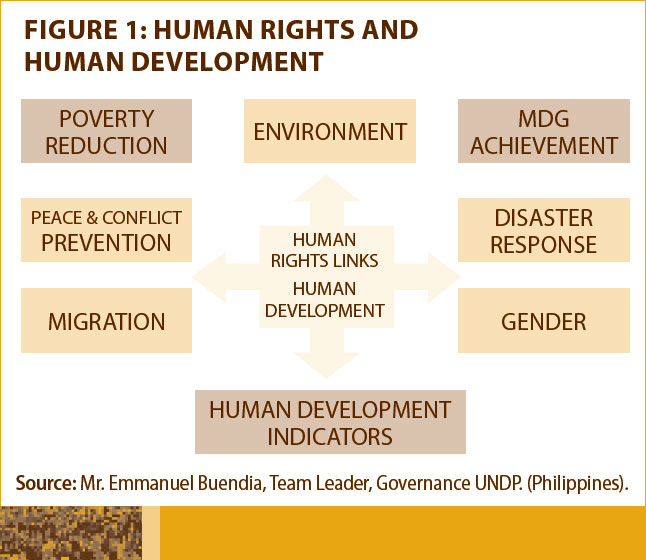Introduction
Human rights and human development are linked in ways that we have long understood but have only recently introduced to programming by NHRIs.
Selim Jahan writes “[h]uman poverty is a denial of human rights – because it infringes on human freedom, it destroys human dignity and it implies discrimination and injustice.”1 NHRIs should be part of the national planning process and be included in the planning cycle related to the development of the UNDAF at the national level.
Taking a human rights-based approach (HRBA) to human development and democratic governance can significantly enhance results achieved across a number of dimensions, including poverty reduction, the environment, peace and conflict prevention and UN Millennium Development Goal (MDG) achievement, to name a few. Understanding the linkages between human development and human rights is essential to the achievement of both. At the same time, it should be remembered that human rights provide a normative and legal framework, whereas development goals, while important, do not have the same normative and legal force.
Depending on the nature of the UN engagement and the requests from the NHRI and the country, UNCTs can play an invaluable role in supporting NHRIs to help move forward the broader development agenda.

Source: Mr. Emmanuel Buendia, Team Leader, Governance UNDP. (Philippines).